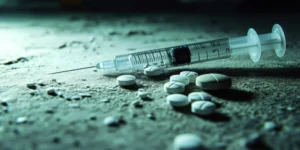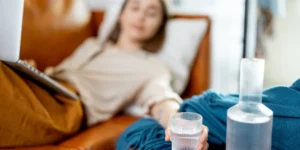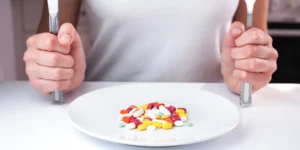The disease of addiction has affected millions of people around the globe. Characterised by two chief physical symptoms and a number of behavioural symptoms this illness leads to compulsive drug use and terrible consequences. Drug addiction treatment programmes are an effective way to curb the cycle of destruction and set the patient on a path to recovery.
The behaviours that could lead to a diagnosis of substance dependence (drug addiction) involve the addict persisntently and compulsively using drugs despite there being negative consequences as a result. Such consequences could include health problems, accidents, divorce, job loss, financial troubles and legal problems. Drug addiction treatment programmes may help the addict to identify these consequences and actually improve motivation for sobriety.

Everyone Claims They’re The Best Type “which drug addiction treatment programme works best” into Google…

Families rarely call for help when things are calm. The phone rings after years of…

There are few decisions heavier than choosing a rehab for someone you love. It’s not…
Physiological dependence is one of the physical diagnostic criteria of addiction. In order to overcome this drug addiction treatment programmes will usually begin with a medically supervised drug detoxification. Doctors will be guided by the nursing staff and available on call to attend to any emergencies. They will prescribe medication to help the patient feel more comfortable. Drug detox can be very difficult to accomplish independently.
The second physical symptom, tolerance, comes as a result of chronic drug use. It is the state where the addict requires higher and higher doses in order to get high. Tolerance will diminish after a time of abstinence. This can lead to a dangerous situation if the addict should again start using drugs after completing drug addiction treatment programmes. The dose that the addict was accustomed to using will now have a much greater effect than it used to. As drug addiction is a progressive illness, this can lead to an accidental overdose.
Any quality treatment will involve a team of skilled addiction treatment consultants. Following the detoxification phase, drug addiction treatment programmes will generally deploy a variety of counselling approaches aimed at helping the patient to identify problematic behaviour and adopt new coping strategies. Detoxification is really just the first phase of treatment, it is the addictions counselling phase that leads to real changes in a person’s life.
An old saying in the recovery world says “if nothing changes, nothing changes”. Recovery is about changing behaviour in order to change your life. If insanity is repeating the same behaviour over and over and expecting different results (as Albert Einstein says), recovery is about trying new things in order to get better results. Drug addiction treatment programmes will help in identifying what needs to be changed and also assist in making these changes.
Some of the elements that quality drug addiction treatment programmes will include are:
- Group therapy – where the community meets with two addictions counsellors as a group. These therapy sessions are beneficial for a number of reasons. Hearing the experiences of others gives new patients hope and let’s them know that they are no longer alone in their struggles. Group Therapy for addicted people also serves as a superb chance to learn new coping skills.
- Individual drug addictions counselling – where the patient receives individual attention from a counsellor.
- Art therapy – groups where a creative approach to expressing emotion is employed.
- Written assignments – usually based on brochures, assignments, step work or other material that is instructive to the patients current position.
Because drug addiction is a complex illness that exists in many dimensions of the person’s life it must be treated with a comprehensive approach. Drug addiction treatment programmes will employ a staff complement that consists of members of various clinical disciplines. By combining their specialist knowledge the team can develop a rich understanding of the patient’s individual makeup.
Outpatient drug addiction treatment programmes are those which allow the addict to live at home and continue their daily routine with minimal interruption. They usually come in to the addictions centre daily after work for lectures, group therapy and individual drug addictions counselling. This sort of program is best suited to people who have not yet crossed the line from drug abuse to drug addiction, as they have a better ability to resist drugs and alcohol while they’re at home and work.
If you are sick and tired of the consequences of your drug addiction then please take heart in knowing that our intake coordinators can help you find a solution. Don’t delay in calling for a free and totally confidential assessment.

Why People Drown in Addiction Info Families scroll through endless articles and definitions hoping for…

Why people mix them up Families often phone me with the same question dressed up…

We trust pills because they come in clean white boxes with neat labels and medical…